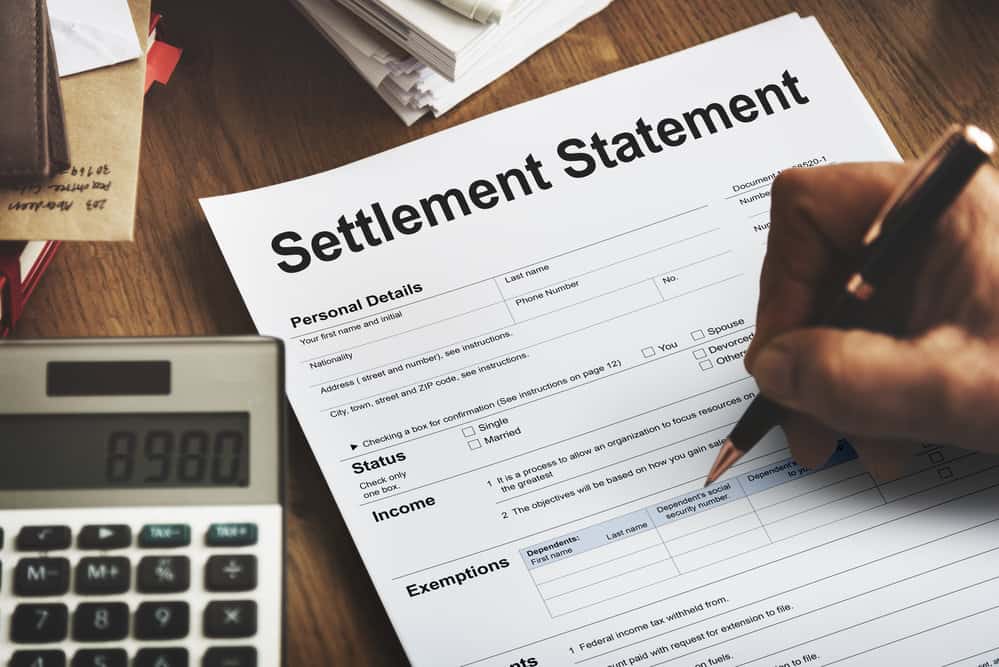When involved in a class action lawsuit, one of the primary concerns for plaintiffs is the timeline for receiving their settlement checks. Settlements can provide much-needed financial relief to individuals affected by corporate negligence or wrongdoing, but it’s essential to understand the process and timeline involved.
Obtaining a settlement check from a class action lawsuit can be complex and lengthy. Numerous factors can influence the timeline, including the class size, the claims’ severity, and the legal hurdles that must be navigated. To better understand this process, it’s important to explore the factors affecting the speed at which cases are resolved, and settlement checks are disbursed.
In many instances, the timeline for receiving a settlement check can span from several months to a few years. Courts or third-party administrators typically oversee the allocation and distribution of settlement funds to ensure fairness and efficiency. Patience and persistence are often required from those participating in class action lawsuits, as it may take some time for all involved to see results.
Understanding Class Action Settlements
Defining Class Action
A class action is a type of lawsuit where a group of people (plaintiffs) collectively sues another party (defendants), usually a company or organization. This legal action is taken when the plaintiffs have a common grievance, often involving violating their rights or harm caused by the defendant’s actions. By pooling resources and working together, the plaintiffs in a class action can more effectively seek justice and compensation for their damages.
Settlement Process
In a class action settlement, the parties involved—plaintiffs and defendants—agree to resolve the lawsuit without going to trial. This settlement agreement often involves the defendant agreeing to pay a specific amount to compensate the plaintiffs for their damages. A judge must approve the settlement to ensure it is fair to all parties involved.
Once approved, the plaintiffs’ attorneys follow a predetermined process to distribute the settlement funds. This usually involves notifying eligible class members, allowing them to participate in the settlement, and verifying their claims. After completing these steps, the attorneys will distribute the settlement payments to eligible class members.
Role of Attorneys
Attorneys play a crucial role in class action settlements. They represent the plaintiffs’ interests, ensuring their rights are protected throughout the litigation process. Additionally, they negotiate the settlement terms with the defendants, striving to reach an agreement that adequately compensates the plaintiffs for their damages.
Attorneys also manage the administrative aspects of a class action settlement. This includes organizing and verifying claims, disbursing funds, and communicating with class members. The attorneys’ fees and expenses are typically paid out of the settlement fund, with the judge’s approval, before distribution to the plaintiffs.
Receiving Your Settlement Check
Claim Filing Process
The process usually starts with locating the settlement website, where the claimant can find information about the class action settlements and access the claim form. Once the claim form is completed, it must be submitted either electronically via the settlement website or by mail to the settlement administrator before the deadline.
Claimants must provide accurate personal information and follow the instructions on the claims form to ensure a successful submission. Notifications regarding the claim’s status often occur through email or mail service.
Payment Methods
There are various methods to receive settlement money, including direct deposit, PayPal, and paper checks. The settlement administrator usually outlines payment options on the settlement website or the claim form. Claimants should be cautious when providing sensitive banking information to avoid issues during payment.
Timeline
The timeline for receiving a settlement check depends on multiple factors, such as court decisions, fund distribution, and the number of claims filed. The funds might take several months or even years to be distributed after the settlement’s approval. Nevertheless, specific information about the expected timeline for the payment can be found on the settlement website.
Once the settlement fund is established, the settlement administrator will distribute compensation to the approved claimants. The method by which the settlement check is received can also impact the timeline – direct deposit and PayPal are typically faster than paper checks sent by mail service.
Receiving a settlement check from class action settlements can be a step-by-step process, requiring attention to detail and patience. Claimants must follow the claim filing process, choose a suitable payment method, and wait for the settlement payout.
Factors Affecting Settlement Payout
Class Action Settlement Amount
The settlement amount in a class action lawsuit is the total amount to be distributed among the claimants. This amount is determined through negotiation between the plaintiffs’ representatives and the defendants. The settlement agreement is then subject to approval by the court. Factors affecting this amount may include the severity of the damages caused, the number of claimants, and the available resources of the defendant.
Individual Compensation
Individual compensation is the portion of the settlement payout each class member receives. The distribution of settlement proceeds is often based on predefined criteria and calculations, considering factors such as the level of harm each individual suffers and the total number of claimants. However, the actual amount may vary as it is influenced by the overall settlement amount and the number of eligible class members who submit valid claims by the specified deadline.
Objections and Appeals
Class members can object to a proposed settlement agreement if they believe it is unfair or inadequate. To file an objection, plaintiffs must provide their contact information and reasons for the disagreement. The court then reviews this complaint during the fairness hearing.
If a class member disagrees with the court’s decision, they can file an appeal. The appeals process can significantly delay the distribution of settlement proceeds, as it may require additional litigation and court orders.
Opting Out and Tax Consequences
Class members also have the option to opt out of the settlement, which allows them to pursue their legal action against the defendant. This is usually done by following specific opt-out procedures within the lawsuit notice and must be completed within a designated timeframe.
Additionally, the tax consequences of a settlement payment may differ depending on the nature of the compensation—whether it is considered income, interest, or damages. Class members must know potential tax implications when determining the net benefit they will receive from a settlement payout.

Additional Information and Resources
Class Action Settlement Websites
There are several websites available that provide reliable information on class action settlements. These websites give updates on various lawsuits, the eligibility criteria for participation, and the steps to file a claim. Some of these websites also offer resources on attorneys and law firms specializing in specific fields and can help you stay informed about the latest developments in ongoing cases. Always verify the source of the information to avoid inaccurate or outdated details.
Social Media and News Updates
Social media platforms like Facebook and Twitter can also be useful resources for obtaining settlement news and updates. Following reputable law firms, attorneys, and legal news outlets on these platforms can help you receive timely and accurate information about class action lawsuits. Remember that not all information on social media is accurate, so always cross-check any updates with reliable websites and news sources.
Government Entities
Government entities can be a valuable source of information about class action settlements. They often have updated details about ongoing cases and offer objective information about settlement eligibility and requirements. Checking official websites like the Federal Trade Commission (FTC) or Consumer Financial Protection Bureau (CFPB) can also provide helpful resources and insights into the actions taken by these organizations to protect consumers.
Technology
As technology advances, new tools, and resources are being developed to help individuals stay informed about class action settlements. Various websites and applications can assist in tracking updates, submitting claims, and organizing medical bills and other relevant documents. Using these technologies, potential claimants can navigate the complex process of class action lawsuits more effectively and efficiently.
Accurate and thorough information is crucial when participating in a class action settlement. Utilize the available resources, be cautious of potential misinformation, and stay informed as you navigate the process.
Frequently Asked Questions
How long does it take to get a settlement check from a class action lawsuit?
The time it takes to receive a settlement check from a class action lawsuit varies greatly depending on several factors, including the complexity of the case and the number of claims filed. Generally, it may take anywhere from a few months to a few years.
Why do class action settlements take so long to be distributed?
There are several reasons for the lengthy distribution process in class action settlements:
- There may be many claimants, making the verification and distribution process time-consuming.
- The case might be complex, requiring more time for the court to review and approve the settlement.
- Either party might have appeals, which could further delay the process.
What can claimants do while waiting for their settlement checks?
While waiting for a settlement check, claimants should:
- Keep their contact information updated with the claims administrator, ensuring they receive any notices or changes relating to the case.
- Monitor the case status through the claims administrator or court website.
- Consult with an attorney or trusted financial advisor to plan for the eventual receipt of the settlement funds.
Are there any ways to expedite the process?
Unfortunately, there isn’t much a claimant can do to speed up the process. However, submitting a timely and accurate claim form can help ensure no unnecessary delays in processing their claim.
Can a claimant receive a partial or advance payment before the case is fully resolved?
In most instances, no partial or advance payments can be made before the case is fully resolved and the court has approved the final settlement.
Please note that each case is unique, and the timeline for receiving a settlement check can differ significantly depending on various factors. It’s always advisable to consult with an attorney or the claims administrator for specific information about a particular class action lawsuit.


